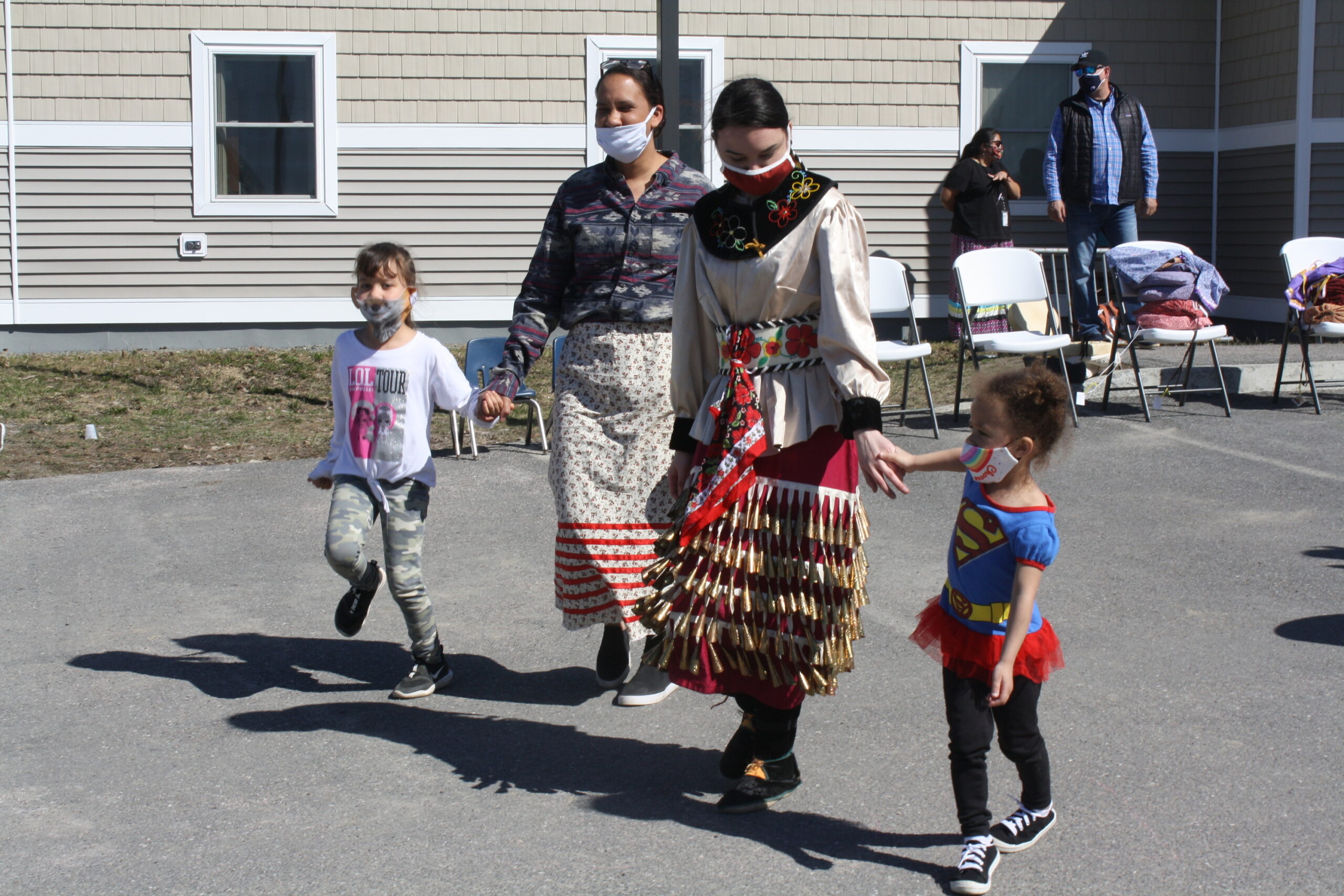
PRESQUE ISLE, Maine — Though their annual Mawiomi of Tribes is still months away, the Aroostook Band of Micmacs held a similar, smaller-scale event on Thursday that aimed to connect children in their community with important cultural experiences.
Little Feathers Head Start hosted the first “mini-Mawiomi,” an event they hope will become an annual tradition. Children from Little Feathers classes wore traditional regalia and took part in drumming, singing and dancing alongside teachers and adult members of the Micmac community.
Glo Curtis, a teacher’s aide who helped coordinate the event, said that Little Feathers often incorporates Micmac language and cultural traditions into their preschool curriculum.
“Our culture is something to cherish, so it’s important that the children see different community members coming together to share in the culture,” Curtis said.
Two mini-Mawiomis were held on Thursday, one in the morning and another in the afternoon, to accommodate the schedules of both Little Feathers classes.
At the start of both events, children sang “The Grasshopper Song” in the Micmac language while playing drums they made with their teachers. Throughout the Mawiomi, children danced alongside Micmac dancers, Pauochau and Sipsis Paul and John Dennis, who were all dressed in traditional regalia.
Dennis, who serves as the tribe’s cultural coordinator, is one of many community members who has visited the Little Feathers classroom to share stories, music and dancing. He praised the Mawiomi as a crucial way to help the children, most of whom are Micmac themselves, feel part of their culture.
“It’s important for them to not just see what we’re doing but to be fully involved in it,” Dennis said. “[The culture] is part of who they are.”
For Blair Dubois, watching her 4-year-old son Justin take part in the mini-Mawiomi brought back memories of growing up in the Micmac community. She said that Little Feathers has already helped him forge connections that she hopes will last a lifetime.
“If it weren’t for Little Feathers, my son wouldn’t know about drumming or anything related to his culture,” Dubois said. “I want him to know about all of this so he can pass it on to his children.”
Though at least 64 percent of children in Little Feathers are of Native American ancestry, the program is also open to non-Native children in the surrounding community.
Tia Tilley noted that Little Feathers has already helped her daughter Cerenity, 3, make friends with children of different backgrounds and learn to respect their cultural values and heritage.
“She’s definitely a people person and very caring. I think being in Little Feathers and coming here [to Mawiomi] will help her understand that we’re all a community,” Tilley said.

PRESQUE ISLE, Maine — April 15, 2021 — Little Feathers Head Start classmates Cerenity Tilley, 3, (left) and Ella Carmichael, 3, dance during the mini-Mawiomi with John Dennis (far left), Pauochau Paul, and Sipsis Paul. (Melissa Lizotte | The Star Herald)









